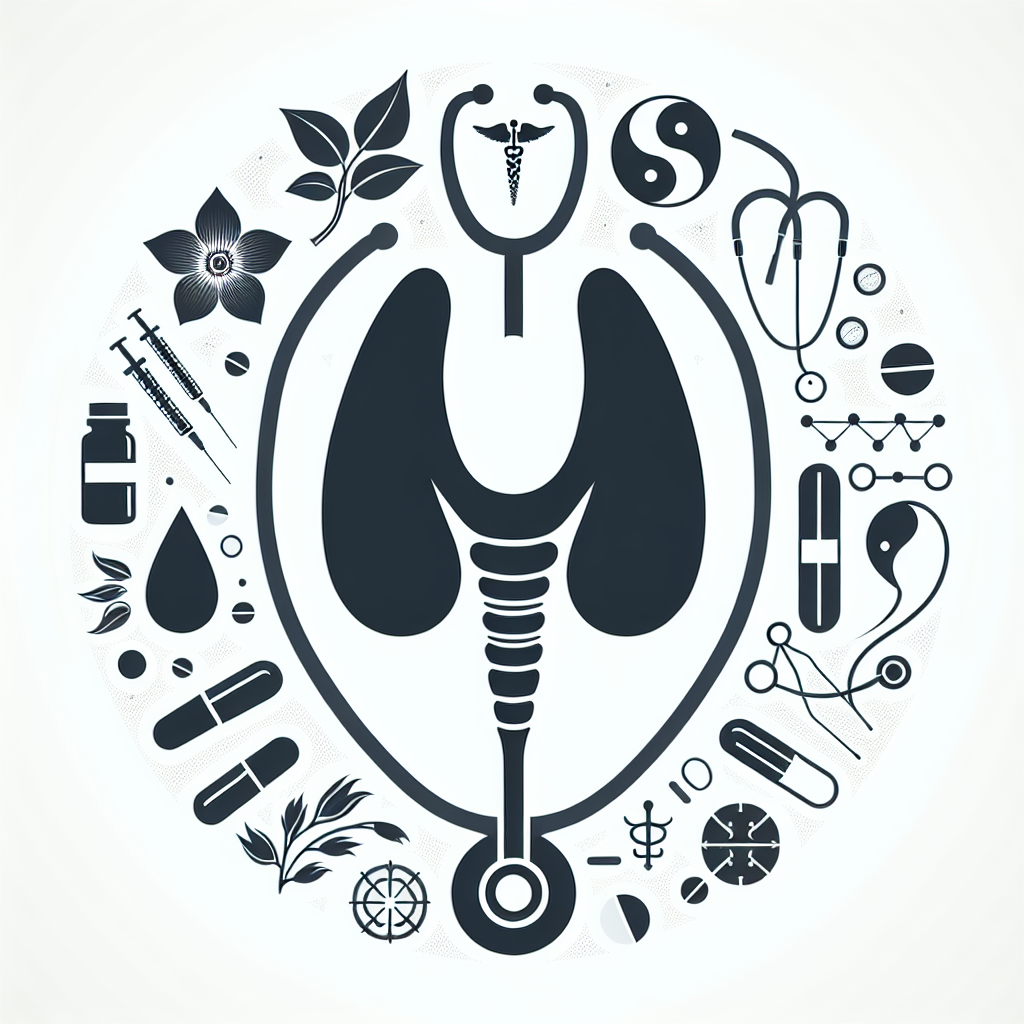Thyroid Nodules: Integrating Western Medical Treatments with Eastern and Alternative Healing Approaches
Thyroid nodules are abnormal growths of thyroid cells that form lumps within the thyroid gland. While most thyroid nodules are benign and asymptomatic, some can be malignant or cause significant clinical symptoms. The prevalence of thyroid nodules increases with age, and they are more commonly observed in women. The management of thyroid nodules presents a unique opportunity to explore and integrate both Western medical treatments with Eastern and alternative healing approaches, offering a holistic pathway to patient care.
Western Medical Treatments
Diagnosis and Evaluation:
Western medicine relies heavily on diagnostic imaging and laboratory tests to evaluate thyroid nodules. Ultrasound is the primary imaging modality used to assess the size, composition, and characteristics of thyroid nodules. Fine-needle aspiration biopsy (FNAB) is often performed to obtain a sample of nodule cells for cytological examination, which helps determine whether the nodule is benign or malignant. Blood tests to measure thyroid function, including thyroid-stimulating hormone (TSH), free T4, and sometimes T3 levels, are also standard.
Treatment Options:
1. Observation: For benign nodules that are asymptomatic, a common approach is watchful waiting with periodic ultrasound monitoring and thyroid function tests.
2. Thyroid Hormone Suppression Therapy: This treatment involves administering levothyroxine to suppress TSH levels, aiming to reduce the size of the nodule. However, its efficacy remains controversial and is not widely practiced.
3. Radioactive Iodine Therapy: Used particularly for hyperfunctioning thyroid nodules (toxic adenomas), radioactive iodine helps shrink the nodule by destroying overactive thyroid tissue.
4. Surgery: Surgical removal of the nodule (lobectomy) or the entire thyroid gland (thyroidectomy) is indicated for malignant nodules, suspicious cytology, or large nodules causing compressive symptoms. Surgery is also considered if there is a significant cosmetic concern.
5. Ethanol or Radiofrequency Ablation: Minimally invasive procedures like percutaneous ethanol injection or radiofrequency ablation are emerging as alternatives to surgery for specific cases of benign nodules.
Eastern and Alternative Healing Approaches
Eastern and alternative healing systems, such as Traditional Chinese Medicine (TCM), Ayurveda, and naturopathy, offer various strategies that differ fundamentally from Western approaches. These practices emphasize balance and holistic care, focusing on the underlying causes rather than just symptom management.
Traditional Chinese Medicine (TCM):
1. Herbal Medicine: TCM practitioners utilize a variety of herbs to support thyroid health and address nodules. Commonly used herbs include kelp (rich in iodine), prunella vulgaris, and haizao yuhu tang.
2. Acupuncture: This practice aims to balance the body’s energy (Qi) and improve overall health. Specific acupuncture points are targeted to regulate thyroid function and reduce nodular growth.
3. Diet and Lifestyle: TCM emphasizes dietary modifications, recommending foods that nourish the thyroid, such as seaweed, cruciferous vegetables, and selenium-rich foods. Stress reduction techniques like Tai Chi and Qigong are also advocated.
Ayurveda:
1. Herbal Remedies: Ayurvedic medicine employs herbs like guggul (Commiphora mukul), ashwagandha (Withania somnifera), and kanchanar (Bauhinia variegata) to balance thyroid hormones and reduce nodule size.
2. Dietary Guidelines: Ayurveda suggests a balanced diet based on one’s dosha (body type), with an emphasis on easily digestible, nutrient-rich foods. Foods high in iodine and selenium are recommended.
3. Detoxification Practices: Panchakarma, an Ayurvedic detoxification process, is believed to cleanse the body of toxins that may contribute to thyroid dysfunction.
Naturopathy:
1. Nutritional Support: Naturopathic practitioners emphasize a diet rich in antioxidants, vitamins, and minerals essential for thyroid health. Supplements like iodine, selenium, zinc, and vitamin D are often recommended.
2. Herbal Medicine: Botanicals such as bugleweed (Lycopus virginicus), lemon balm (Melissa officinalis), and bladderwrack (Fucus vesiculosus) are used to support thyroid function and reduce nodule size.
3. Mind-Body Practices: Techniques such as yoga, meditation, and stress reduction are integral to naturopathy, promoting overall well-being and hormonal balance.
Integrative Approach
Integrating Western and Eastern/alternative approaches can offer a comprehensive strategy for managing thyroid nodules. Here are key considerations for a holistic treatment plan:
1. Personalized Care: Combining the diagnostic precision of Western medicine with the individualized treatment plans of Eastern/alternative practices can lead to better patient outcomes. For instance, using ultrasound and FNAB to monitor nodule characteristics while incorporating herbal treatments and dietary adjustments from TCM or Ayurveda.
2. Complementary Therapies: Acupuncture and meditation can be used alongside conventional treatments to reduce stress and improve overall health, potentially impacting thyroid function and nodule management.
3. Patient Education: Educating patients about the benefits and limitations of both approaches can empower them to make informed decisions. A collaborative approach between endocrinologists, herbalists, and naturopaths ensures a balanced perspective.
4. Safety and Efficacy: While integrating different modalities, it is crucial to consider the safety and efficacy of each treatment. Regular monitoring and open communication between healthcare providers are essential to avoid adverse interactions and ensure optimal care.
Conclusion
Thyroid nodules represent a complex medical condition that can benefit from the integration of Western medical treatments with Eastern and alternative healing approaches. While Western medicine offers precise diagnostic tools and evidence-based treatments, Eastern and alternative practices provide holistic and individualized care that addresses the root causes of thyroid imbalances. By combining the strengths of both systems, healthcare providers can develop comprehensive and personalized treatment plans that enhance patient outcomes and overall well-being. Integrative medicine holds the promise of bridging the gap between these diverse healing traditions, fostering a more inclusive and effective approach to thyroid health.

